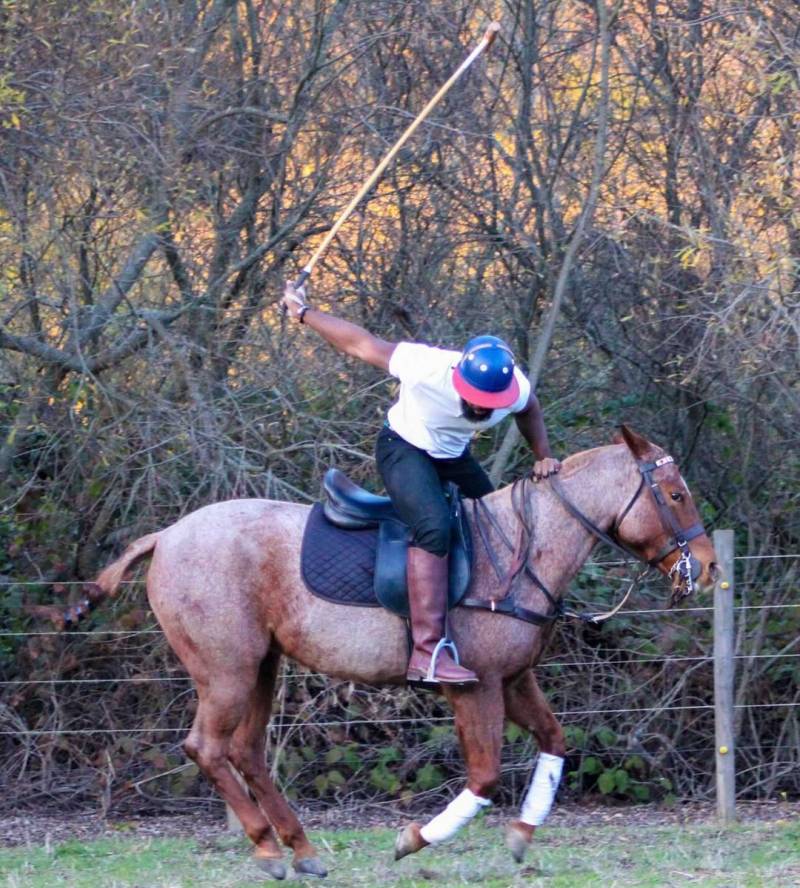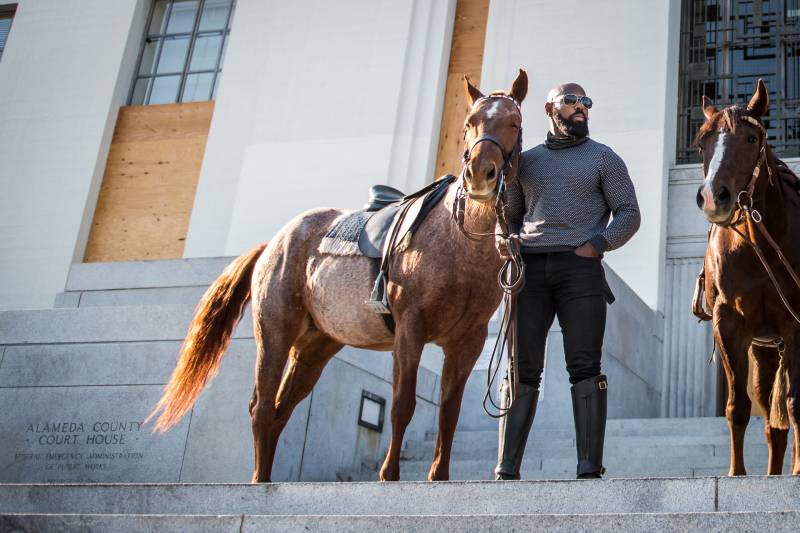Dale Johnson grew up in East Oakland with stories of his grandfather riding horses on a Texas ranch. For years horses were just part of a family story. But one day, a pair of polo boots caught Dale’s eye and he was brought back into the world of equestrians.

Now Dale and his horse, Sunny, are deep in the horseback community. Last fall for Halloween, they joined other riders, like Brianna Noble, to ride through San Francisco’s Sunnydale Projects dressed up like Wakandans. Dale and Sunny were also part of the Ride Out to Vote campaign last November.
This week on Rightnowish, Dale and I talk about what it means to be a polo player and an equestrian in the face of race and class stereotypes that come with being an African American man from East Oakland.
Below are lightly edited excerpts of my conversation with Dale Johnson.
DALE: My grandfather was born around 1917-1918. His name was Chester Johnson, he grew up on a ranch just north of Houston, called High Prairie. And that was actually a Black settlement that my family founded shortly after Juneteenth with another family called the McAddams Family. And basically they went into cattle ranching. Fast forward his life, he ended up kind of coming to Oakland in the war and the Great Migration, like a lot of other Black families did. But, you know, when I was growing up, he would talk about horses and it was very much in his blood and in his roots.
So in the back of my mind, there were always horses there… Fast forward in my life. I was on a business trip in Buenos Aires, and I walk into a shop and I look up and I see a pretty badass pair of boots on the top shelf. And I asked a shopkeep like, ‘Are those for polo?’ And he’s like, yeah, those are polo boots. And I was like, man, those boots are bad. So I decided after that, I was going to take up polo.
PEN: You’re a bigger dude. When I think of horseback riding for some reason I think it jockeys and like smaller people like my size, right? You’re pretty built…
DALE: When you look at a lot of the polo world, people tend to skew a little more lean. I think my body type, having played a variety of sports and being a bit of an athlete and a weight lifter in the past, is a little bit different than what you typically see on the polo field, but it’s not impossible or it’s not like it hasn’t happened before.
PEN: And then the other aspect of it is that you’re an African American man.
DALE: You know, when I play the sport, I always want to be known as a really good player, a decent player, a gentleman on the field. But I am a Black polo player.
You’ll see Black polo players throughout the country, but the numbers and the representation from the Black community or the African American community in general is obviously not as large. But I can say, that not at one point in this particular community have I ever felt un-welcomed or not included. That is not always the case, though. I’ve heard in different parts of the equestrian world, especially with Black women, maybe in the Hunter Jumper world or the dressage world, that’s not always the case for them.
You do feel the weight of being a Black equestrian and then also representing the polo community and then representing my own family, you think about the weight of what that means.



